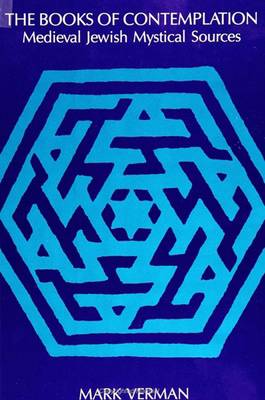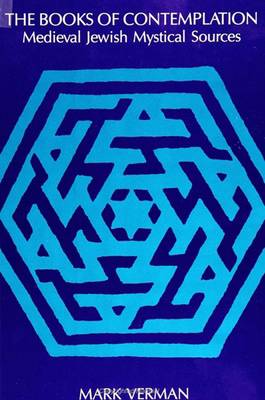
- Afhalen na 1 uur in een winkel met voorraad
- Gratis thuislevering in België vanaf € 30
- Ruim aanbod met 7 miljoen producten
- Afhalen na 1 uur in een winkel met voorraad
- Gratis thuislevering in België vanaf € 30
- Ruim aanbod met 7 miljoen producten
Zoeken
€ 53,45
+ 106 punten
Uitvoering
Omschrijving
The earliest medieval Jewish mystical writings, or kabbalah, date from the late twelfth and early thirteenth centuries. This is the first book to focus on the most prodigious group active at that time--the 'Circle of Contemplation'.
The 'Circle of Contemplation' generated a mystical theology that differs radically from mainstream kabbalistic theosophy. Two of this group's penetrating speculations on God and the origins of the universe are The Book of Contemplation and The Fountain of Wisdom. A meticulous and systematic study of these writings forms the core of this book.
Verman discovered that the 'Circle of Contemplation' produced a series of distinct treatises, each entitled The Book of Contemplation and attributed to the same fictitious author. These treatises, embodying one of the most intriguing puzzles of medieval literature, are included here.
The author concludes that these writings were a product of thirteenth-century Spain, not France, as claimed by Gershom Scholem. His conclusion engendered a critical evaluation of the premises of Scholem's historiography of early medieval Jewish mysticism.
The 'Circle of Contemplation' generated a mystical theology that differs radically from mainstream kabbalistic theosophy. Two of this group's penetrating speculations on God and the origins of the universe are The Book of Contemplation and The Fountain of Wisdom. A meticulous and systematic study of these writings forms the core of this book.
Verman discovered that the 'Circle of Contemplation' produced a series of distinct treatises, each entitled The Book of Contemplation and attributed to the same fictitious author. These treatises, embodying one of the most intriguing puzzles of medieval literature, are included here.
The author concludes that these writings were a product of thirteenth-century Spain, not France, as claimed by Gershom Scholem. His conclusion engendered a critical evaluation of the premises of Scholem's historiography of early medieval Jewish mysticism.
Specificaties
Betrokkenen
- Auteur(s):
- Uitgeverij:
Inhoud
- Aantal bladzijden:
- 282
- Taal:
- Engels, Hebreeuws
- Reeks:
Eigenschappen
- Productcode (EAN):
- 9780791407202
- Verschijningsdatum:
- 4/02/1992
- Uitvoering:
- Paperback
- Formaat:
- Trade paperback (VS)
- Afmetingen:
- 152 mm x 229 mm
- Gewicht:
- 226 g

Alleen bij Standaard Boekhandel
+ 106 punten op je klantenkaart van Standaard Boekhandel
Beoordelingen
We publiceren alleen reviews die voldoen aan de voorwaarden voor reviews. Bekijk onze voorwaarden voor reviews.











